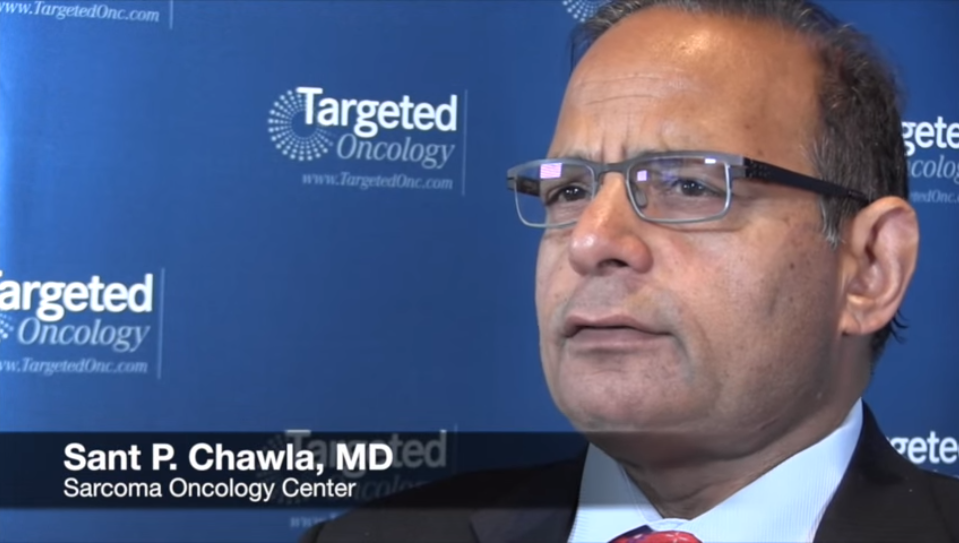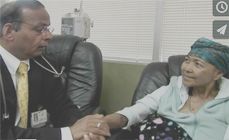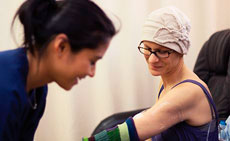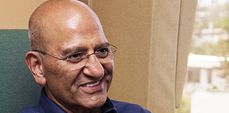“If children have the ability to ignore all odds and percentages, then maybe we can all learn from them. When you think about it, what other choice is there but to hope?”
Lance Armstrong, LIVESTRONG Foundation
Skeletal Muscle Sarcoma Explained
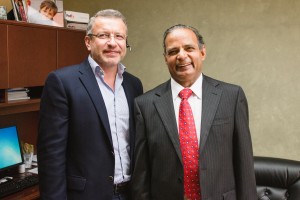 Rhabdomyosarcoma (RMS) is the medical term for a type of cancer which originates in cells (called rhabdomyoblasts) that develop into skeletal muscles. We are all born with these cells, which start in the embryo, but they infrequently develop into RMS. While this disease can strike adults, it is primarily a cancer common in children because of the embryonic origins.
Rhabdomyosarcoma (RMS) is the medical term for a type of cancer which originates in cells (called rhabdomyoblasts) that develop into skeletal muscles. We are all born with these cells, which start in the embryo, but they infrequently develop into RMS. While this disease can strike adults, it is primarily a cancer common in children because of the embryonic origins.
Skeletal muscle sarcomas are more common in children but when they do occur in adults, they tend to be more aggressive and more difficult to treat. Integrated medical care is the best possible treatment for skeletal muscle sarcoma. The Sarcoma Oncology Center collaborates with surgeons, radiologists, pathologists and radiation oncologists from other prominent institutions to ensure that the complexity of each patient’s case is addressed in its entirety and that each patient’s quality of life is protected with a strong emphasis on limb and tissue preservation. Our oncologists are intimately involved with each patient giving personal and individualized attention from prestigious oncologists who are specialists in sarcoma and its numerous forms.
The body has three main types of muscles:
- Skeletal (voluntary) muscles: control to move parts of the body.
- Smooth (involuntary) muscle: main type of muscle in internal organs that cannot be controlled.
- Cardiac muscle: main muscle type in the heart.
While it’s common knowledge that skeletal muscles are found mainly in arms and legs, they exist elsewhere in the body and for that reason, skeletal muscle cancers can start nearly anywhere. Common sites of RMS include:
- Head and neck (near the eye, inside the nasal sinuses or throat, or near the spine in the neck)
- Urinary and reproductive organs (bladder, prostate gland, or any of the female organs)
- Arms and legs
- Trunk (chest and abdomen)
The different forms of Rhabdomyosarcoma include:
- Embryonal – the most common type and found in children aged five or younger.
- Alveolar – typically affects all age groups but most often seen in older children and teens. This type often occurs in large muscles of the trunk, arms, and legs. Tends to grow quickly and usually requires more intensive treatment than other RMS.
- Pleomorphic – a very rare subtype that occurs in middle-aged adults, but not common in children. It grows quickly and could require intensive treatment.
Lifestyle-related risk factors such as body weight, physical activity, diet, and tobacco use play a major role in many adult cancers. But these factors usually take many years to develop, plus they are not thought to play much of a role in childhood RMS. So with children, it is important to be aware of persistent pain, swelling, or lumps that grow quickly or don’t go away after a couple of weeks.
Skeletal Muscle Sarcoma Symptoms
There are no widely recommended screening tests for RMS, but it can be caught at an early stage provided the growth occurs in a noticeable part of the body and symptoms persist, such as:
- trunk, limbs, or groin – the first sign is usually a mass or swelling. Sometimes it can cause pain, redness, or other problems.
- around the eye – eye to bulge out or the child to appear to be cross-eyed.
- ear or nasal sinuses – earache, headache, or sinus congestion.
- bladder or reproductive organs – blood in the urine, painful urination, or bowel movements.
- abdomen or pelvis – vomiting, abdominal pain, or constipation.
Infrequently, children might have symptoms related to more advanced RMS, which includes bone pain, persistent cough, weakness, or weight loss.
Older children who develop tumors in the arms, legs, or core body, might be difficult to assess since they often have pain or bumps from sports or minor injuries. Always take immediate action when anything unusual is discovered and consult medical treatment.
One or more of these symptoms usually leads parents to bring a child to the doctor. Many of these signs and symptoms are more likely to be caused by something other than RMS. Still, if a child has any of the symptoms mentioned, check with a doctor so that the cause can be found and treated, if needed.
Treatment for Skeletal Muscle Sarcoma
Sarcomas are a complex form of cancer and require team-oriented, multi-modal, individualized treatment plans. The Sarcoma Oncology Center collaborates with prominent surgeons, pathologists and radiation oncologists from institutions such as UCLA, USC, Stanford, M.D. Anderson, St. John’s and Cedars Sinai to develop and implement the most effective multi-modality treatment plan for each case. The Center develops a treatment plan based on the grade and stage of the tumor, prior treatments received (if any), progress of the cancer, biopsy analysis and other individualized factors. The oncologists at the Sarcoma Oncology Center are at the forefront of sarcoma research and are pioneers of the most cutting edge sarcoma clinical research trials in the world. The oncologists at the Center go beyond standard care for cancer when needed and have access to the most novel cancer drugs at their fingertips.
To learn more about skeletal cancer treatment, visit WebMD.com.
Clinical Trials at Sarcoma Oncology Center
Here at the Sarcoma Oncology Center, our expert oncologists are actively involved in clinical trials of the newest drugs and work with a team of experts to develop the best treatment plan for each individual.
Dr. Chawla is currently working on a clinical trial as the principal investigator of Cediranib (or Sunitinib) which is sponsored by the National Cancer Institute (NCI).
Contact the Sarcoma Experts for More Information
Sarcoma Oncology Center’s approach to treatment entails the physical and emotional well-being of each individual and provides an expert team of medical specialists. Please contact our center at 310-552-9999 to schedule a consultation with one of our physicians.
Next, read about vascular cancer treatment.

